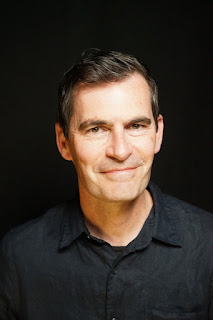Brandon Brown is a Professor of Physics at the University of San Francisco. His research includes work on superconductivity and sensory biophysics. He enjoys writing about science for general audiences, including articles in such outlets as such outlets as New Scientist, Scientific American, Slate and Smithsonian.
Why science?
I had many interests in school, but science - physics in particular - seemed to come most naturally to me, and I had little capacity for memorization. I loved languages and cultural anthropology, for example, but these subjects didn't come as easily as physics. I also seriously considered a direct path toward 'being a writer', but I received what turned out to be excellent advice from a writing professor: Why don't you try to be a scientist, and write from there some day?
Why this book?
I do not have a background in space science, or space history. In fact, I was never too interested in NASA growing up. I simply took it for granted: NASA was just where my father hauled his little briefcase and thermos every morning. The book really began when I wanted to better understand my father's work at NASA and I attempted to find an approachable, engaging book that immersed itself in the trials of the engineers in the 1960s. I decided yet another Apollo book deserved to be written, especially as we are losing so many of the elderly engineers and their first-hand accounts every year.
What's next?
As of this writing, I'm feeling the pull of my old biophysics work again, focused on the electric sense of sharks and their relatives. But I hope for another book or long-form project, perhaps at the intersection of humans and theoretical physics. I'll be the 'writer in residence' at the Kavli Institute for Theoretical Physics this coming spring, taking notes and conducting interviews.
What's exciting you at the moment?
I'm especially excited about ongoing illuminations in brain science and what this might mean for the process of science itself - from pitfalls and dead ends to flashes of insight. That's an absurdly broad topic. But I'm struck by the following juxtaposition (as I'm sure many others have been): (a) specific evolutionary pressures helped build our brains and their patterns of problem solving, and (b) physicists, in particular, don't seem to consider the brain as having any specifications whatsoever. We readily detail the shortcomings of any laboratory device so as to not be fooled by its data, but we then use our brains as if they are perfect for any task, with no manufactured tendencies toward certain shortcuts, cul-de-sacs, or misconceptions. Just add coffee and hit the start button, we seem to say.
Why science?
I had many interests in school, but science - physics in particular - seemed to come most naturally to me, and I had little capacity for memorization. I loved languages and cultural anthropology, for example, but these subjects didn't come as easily as physics. I also seriously considered a direct path toward 'being a writer', but I received what turned out to be excellent advice from a writing professor: Why don't you try to be a scientist, and write from there some day?
Why this book?
I do not have a background in space science, or space history. In fact, I was never too interested in NASA growing up. I simply took it for granted: NASA was just where my father hauled his little briefcase and thermos every morning. The book really began when I wanted to better understand my father's work at NASA and I attempted to find an approachable, engaging book that immersed itself in the trials of the engineers in the 1960s. I decided yet another Apollo book deserved to be written, especially as we are losing so many of the elderly engineers and their first-hand accounts every year.
What's next?
As of this writing, I'm feeling the pull of my old biophysics work again, focused on the electric sense of sharks and their relatives. But I hope for another book or long-form project, perhaps at the intersection of humans and theoretical physics. I'll be the 'writer in residence' at the Kavli Institute for Theoretical Physics this coming spring, taking notes and conducting interviews.
What's exciting you at the moment?
I'm especially excited about ongoing illuminations in brain science and what this might mean for the process of science itself - from pitfalls and dead ends to flashes of insight. That's an absurdly broad topic. But I'm struck by the following juxtaposition (as I'm sure many others have been): (a) specific evolutionary pressures helped build our brains and their patterns of problem solving, and (b) physicists, in particular, don't seem to consider the brain as having any specifications whatsoever. We readily detail the shortcomings of any laboratory device so as to not be fooled by its data, but we then use our brains as if they are perfect for any task, with no manufactured tendencies toward certain shortcuts, cul-de-sacs, or misconceptions. Just add coffee and hit the start button, we seem to say.


Comments
Post a Comment